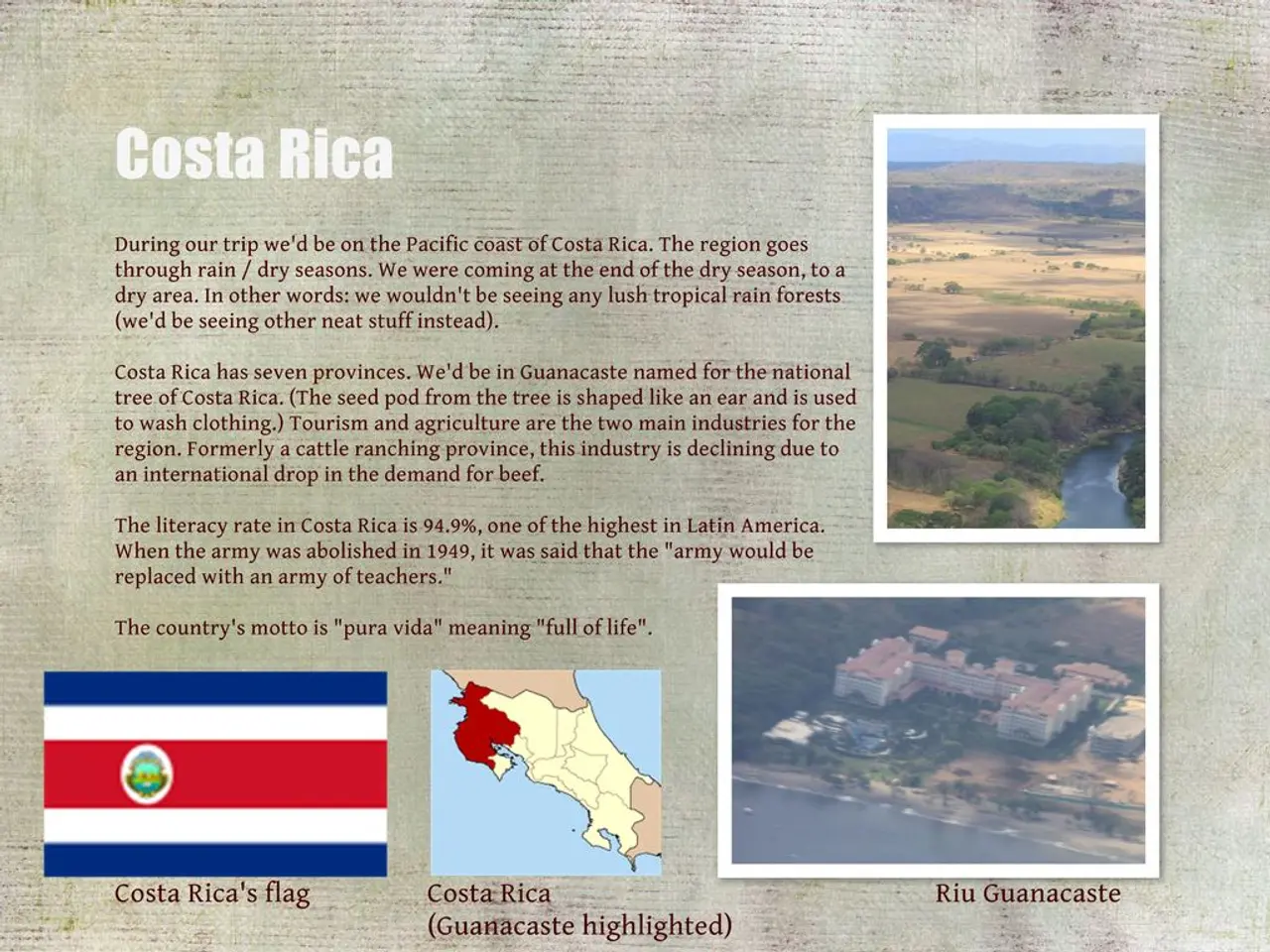Elimination of Presidential Term Limitations in El Salvador enables Bukele for additional presidency
In a controversial move, El Salvador's Legislative Assembly has pushed through a constitutional reform that allows President Nayib Bukele to seek indefinite re-election, a decision that has drawn sharp criticism from international rights groups and concerns about democratic erosion.
The reform, which removes presidential term limits, has been interpreted as a move that could enable authoritarianism and undermine democratic checks and balances. Critics warn that indefinite re-election could weaken institutions and encourage governance styles that bypass opposition and civil society.
Under the reform, presidential terms have been extended from five to six years, and the general elections have been moved to March 2027, shortening the current presidential term by two years. The reform also does away with a second round of voting in elections and allows for re-election "without reservation".
Bukele's government has faced allegations of human rights abuses, including the detention of human rights defenders like prominent lawyer Ruth Lopez, who had denounced alleged cases of government corruption. More than 400 people have died in custody during the ongoing emergency regime, and a wave of arrests targeting human rights defenders and government critics has prompted dozens of journalists and humanitarian workers to flee the country.
Human Rights Watch's Americas director Juanita Goebertus compared El Salvador's reforms to Venezuela's path towards dictatorship. In a speech, President Bukele brushed off international criticism over the arrest of humanitarian activists, stating he doesn't care if people call him a dictator.
Opposition lawmaker Marcela Villatoro denounced the constitutional reform, stating that democracy has died in El Salvador. Miguel Montenegro of the nongovernmental Human Rights Commission stated that the reforms dismantle what little democracy remained.
While specific reactions from countries or international organizations are not detailed in the provided source, such constitutional changes often prompt concern from entities like the Organization of American States (OAS), the United States, and the European Union, which tend to emphasize respect for democratic institutions and term limits.
Ruling party lawmaker Ana Figueroa stated that Salvadorans can now decide how long to support their president, but the concerns about democratic backsliding and the potential impact on governance remain a cause for international concern.
- Critics of the constitutional reform in El Salvador have expressed concerns that the removal of presidential term limits could lead to a shift towards authoritarian governance, similar to the path taken by Venezuela.
- The reform also raises questions about the role of media, policy, and politics in El Salvador, as it does away with a second round of voting in elections and allows for re-election "without reservation."
- International organizations, such as the Organization of American States (OAS), the United States, and the European Union, often express concern over constitutional changes that undermine democratic institutions and term limits, as such changes are seen as crucial for general news, crime and justice, and elections.








